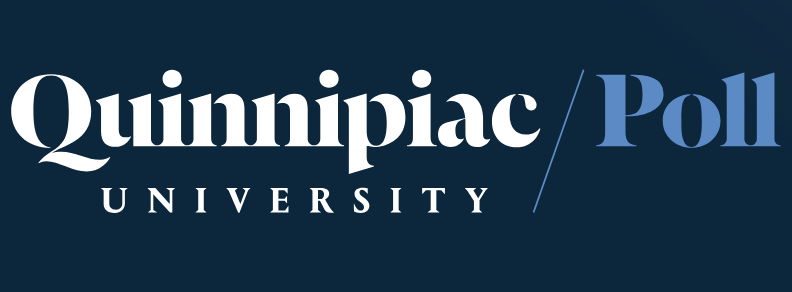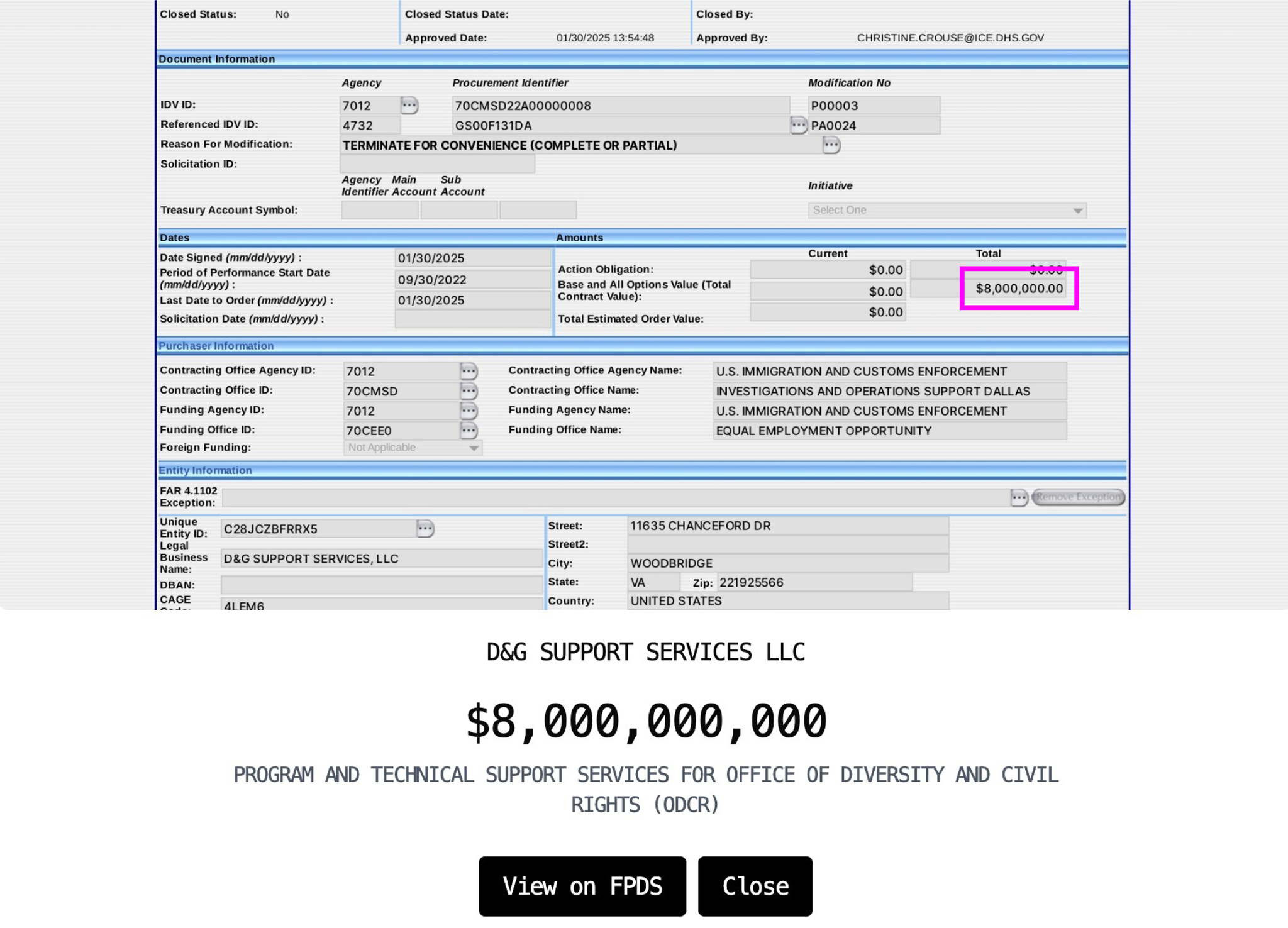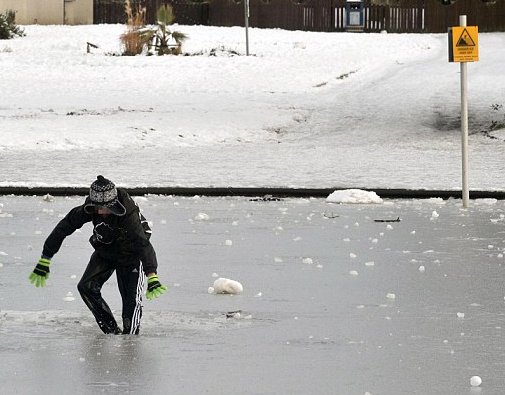Case Studies in the News
March 5, 2025

Expand Your Scope
While working out today at the gym, I caught this statistic on Fox News in the context of reactions to Trump's March 4 speech to Congress:
21% of voters approve of Democratic leadership in Congress
I don't recall seeing a citation for that number, but with a little searching, it comes from a poll conducted by Quinnipiac University published on February 19, 2025: https://poll.qu.edu/poll-release?releaseid=3919
Thinking there might be more to the story than a record low number of people approving of Democrats, here's more from the same poll that wasn't included in the Fox News coverage:
- 21% of Democratic voters approve of Democratic leadership in Congress
- 40% of Republican voters approve of Republican leadership in Congress
- 49% of Democratic voters disapprove of Democratic leadership in Congress
- 52% of Republican voters disapprove of Republican leadership in Congress
When it comes to disapproval ratings, Republicans lead Democrats. This was not part of the Fox coverage I saw.
Moreover, the 21% approval statistic was inserted into a broadcast about Democratic behavior during Trump's Joint Session of Congress speech last night. The poll results shed no light on people's reactions to Democrats on March 4, since it was taken in mid-February. The dates don't match up--always an important fact to check.
There are certainly more details in the Quinnipiac poll than reported here, and certainly more than what Fox News reported.
It helps to expand one's scope to make sense of numbers.
February 27, 2025

SMS Scam: Toll Ways Notice of Evasion
This message appeared in my text messages this morning:
The Toll Roads Notice of Toll Evasion: You have an unpaid toll bill on your account. To avoid late fees, pay within 12 hours or the late fees will be increased and reported to the DMV.
https://secure.getipassce.xin/payabill
(Please reply Y, then exit the text message and open it again to activate the link, or copy the link to your Safari browser and open it)
The Toll Roads team wishes you a great day!
It's the kind of message that makes you wonder if you missed a toll payment (especially if you live in an area that has road tolls, which I do). Rather than click on the link and follow the directions in the email to make a payment--which should ALWAYS be a red flag (even if it really isn't)--I did a quick check online with the following query:
Toll Roads Notice of Toll Evasion
That phrase taken from the message is specific enough to match any information online of a similar nature. Sure enough, there are reports of this item as a "smesh:" i.e., a scam text message. Some online sources addressing this had contacted their state Department of Transportation to verify if it was real or a fake, receiving confirmation it was not real.
Checking secondary sources online for evidence of a fake or scam is one method to avoid falling prey to false information.
There is at least one other clue in the message of its questionable veracity: the URL. The extension used in .xin which is Chinese. Why would someone in China be sending you a tollway notice? That and the odd directions for making a payment by copying the URL to a browser, etc. just sounds fishy.
Always double check before opening your wallet!
.February 20, 2025

Bad with Math?
Claim
There is plenty to fact check in the news these days. A recent statement on the DOGE.gov website is attracting attention:
" DOGE's total estimated savings are $55 billion." source
A screen shot of one of the contract savings is shown below. The page shows a discrepancy between the number in the outlined box, $8,000,000.00, and the number at the bottom of the page, $8,000,000,000. Can you spot the difference? If so, you're better than the person who authored the erroneous information.
It's simply not the same number. Which should be believed? This is a black and white case of needing to put more trust in an authentic source document than in someone's commentary on it. Was it just a typo? If so, the second number is off by a factor of 1,000. Not a small typo. A larger version of the image may be found here.
The image is a screenshot of a contract cancellation of a "program and technical support services” for ICE’s Office of Diversity and Civil Rights, as described in federal records. DOGE cancelled a smaller number than they claimed. Why? Bad at math?
The $8 billion dollar amount is part of DOGE's $55 billion claim. Have they committed other errors as well?
To be safe, always search for an original source.
February 18, 2025

A case for fact checking numbers.
Claim
At a press conference today, President Trump is recorded as saying:
"The leader in Ukraine is down at 4% approval ratings. Wouldn't the people of Ukraine need to have an election? Ukraine is being wiped out." source
Numbers and proper nouns make the best search terms. This goes for speculative searching (searching for something where you aren't sure you'll find it) and investigative searching (evaluating information you found). But it's not all as easy as searching for a number.
In this case, if you search for 4% approval ratings Trump OR Ukraine, you'll retrieve the quote found above and other reporters' coverage of the news conference. This doesn't mean that because the number appears in multiple locations it should be taken as a fact (the only fact is that Trump said it).
In order to check if 4% is, in fact, the current approval rating of Ukraine's leader, a better query would be:
Zelensky approval rating
Some of the results will be about Trump's press conference remarks since that is fresh news as of today. Examining the first page of results (in Google):
- Fox News: Zelenskyy faces perilous re-election odds as US, Russia ...
- Mujtaba Rahman on X: "Where is this 4% approval rating ...
- The New York Times: Zelensky Could Face Tough Re-election Prospects, Polls ...
- Statista: Volodymyr Zelenskyy's approval rating in Ukraine 2019-2024
- Yahoo: Donald Trump claims Zelensky only has a 4% approval rating
- The Brussels Times: Ukraine: President Zelenskyy's popularity took a dip in...
The articles may be skimmed to see if they are just reporting what Trump said, or have additional information on Zelensky's approval ratings. Fox News, the thread on X, the New York Times, Statisa and the Brussels Times are all in agreement: Zelensky's approval ratings (last time they were sampled in Dec. 2024) placed him a little above a 50% approval rating. This was down 40% since the start of the conflict in 2022.
Remember what's important here: President Trump did not take a survey, he reported on one. His numbers don't agree with any other sources. Where did he come up with the number 4%. That is a question no one in the room asked him. But plenty of sources fact checked him before passing along his erroneous claim.
This analysis from Statisa comes to a different conclusion:
October 2024, nearly seven out of ten Ukrainians approved of the activities of Volodymyr Zelenskyy as the president of the country.
February 11, 2025

A good test case for trust comes when a claim is made and no evidence is provided.
Claims
Take for instance two statements made by Elon Musk today in the Oval Office and reported on numerous news services:
- Some officials at the now-gutted U.S. Agency for International Development had been taking “kickbacks.” Musk said “quite a few people” in that agency somehow had “managed to accrue tens of millions of dollars in net worth while they are in that position.”
- Musk also claimed that some recipients of Social Security checks were as old as 150.
No specific examples or fraud or evidence for the claims were provided. So what do you do?
- Do do know Musk personally? If so, you may have some important context to make up for the missing information.
- Does he have a history of telling you things that are factual or not? Most people don't have a relationship with Musk, so few can use "personal knowledge" to decide if the information source can be believed.
- Can you check out the information to determine if it can be trusted or not? Lacking evidence makes this hard to do. This is an evolving news situation--there is only anecdotal information provided by one person.
- Do you believe the information without evidence, taking it on blind faith that other people in room (e.g., Trump) goes along with it?
- I trust someone I know who has a proven track record of saying trustworthy things--in other words, I believed them and it turned out well.
- I trust someone or some organization I don't know personally who has a good reputation--others report trusting them and believe it turned out well.
- I know the person and he or she tells me reliable things that I can verify by trying them.
- I've never had personal experience with the person (or organization) but people who I respect tell me they are a reliable authority.
- Over a third of the teens report being misled by fake content online
- Close to 6 in 10 teens express "doubt that tech companies will prioritize their mental health and well-being over profits"
- One in five teens reports sharing information they later learned was fake
- Teens in the study advocate for stronger safeguards around AI technology
Note that Trump doesn't exactly corroborate Musk's claim and was surprised at the results: [President Trump] said he thought it was “crazy” that DOGE has been able to find so much fraud and waste in the federal government, arguing “we had no idea we were going to find this much.” source
Couple this with another statement Musk made when asked about the truth of other claims he has made:
“Some of the things that I say will be incorrect and should be corrected. Nobody’s going to bat 1.000,” Mr. Musk said. “We all make mistakes. But we’ll act quickly to correct any mistakes.” source
Whenever you come up empty on evidence and lack a personal history with an information source, it's never a good idea uncritically to accept the information on blind faith. It's impossible to make an informed choice when evidence is lacking.
What evidence can you find to fill those empty hands?
February 9, 2025

How do you decide what is a truth and what is a lie?
Trust
The lead question is essentially the same as asking, "what information do you trust?" The usual answers include:
Today there is a lot of disagreement in current politics, religion, society and culture about who to trust. People have opposite views about individuals, news sources, and authorities. The question to ask isn't "Do I trust them?" but "if I believe them, what happens?" At some point everyone has to act on the information they receive, otherwise there is no going forward. The test for trustworthiness is "Do the results make this source one I can continue to trust?" The danger in this approach is that you may be harmed.
Authority
What makes someone an authority? This is nearly identical to knowing if you can trust someone.
It's impossible to know everyone. People we are close to are the easiest to trust (or mistrust) because we have first hand information about them. We aren't close to the majority of information sources in our world, therefore we depend on sources we do know to tell us if the information from others is reliable. Here's where a lot of erroneous assumptions get made. Unless we do our own research we cannot know if something we believe to be true can be trusted. That's hard work. It's a lot easier to believe stuff we see or hear that agrees with the things we already value. So here's something to try: act on the information you want to test. Either read up on it from a variety of sources, or just trust your gut. See what results you get. But be careful, something may happen you don't expect or want. Take small steps at first--was the information something you could trust? Then share you findings with others who trust you.
January 30, 2025

As individuals and news outlets report on the tragic mid-air collision of American Airlines Flight 5342 and a military helicopter, very different responses help to illustrate the accuracy and reliability of information cited.
Facts
Source: Associated Press -- "Skaters Jinna Han and Spencer Lane were among those killed, along with their mothers, and coaches Evgenia Shishkova and Vadim Naumov, said Doug Zeghibe, CEO of the Skating Club of Boston, during a Thursday news conference."
Noteworthy in this report is the presence of names that may easily be fact-checked. Proper nouns and numbers are excellent terms for investigative searching, as they may be corroborated--or not--by other sources.
Speculation
Source: CBS News -- "Asked directly how he came to the conclusion that diversity had something to do with the crash, Mr. Trump replied, 'because I have common sense.'"
Noteworthy in this report is the lack of evidence cited and in its place the role of common sense. Common sense may seem trustworthy to the person who cites it, but there are many examples when common sense fails to foresee or prevent unwanted results. Furthermore, there is no way to fact check a personal belief about common sense other than to trust the person responsible or doubt that common sense is always right.
January 29, 2025

Opportunities to be misled by online information appears to be on the rise, according to 1,000 American teens who participated in the following study by Common Sense Media.
Research Brief: Teens, Trust, and Technology in the Age of AI
Several highlights:
These teens' realizations are worth factoring into conversations around the content verification efforts, or lack thereof, of online platform providers. The implication is that content trust very much matters to our current 13 - 18 year olds.